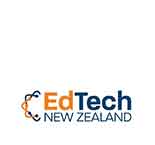I hope that lockdown finds you, your family and whanau safe and well!
Welcome to our new format newsletter. If this goes well, we’ll stick to this and build on it – feedback is always welcome.
In the news
New regulations for China’s education sector are likely to have ramifications for New Zealand EdTech’s exporting to that region. In essence, companies and institutions that teach the school curriculum must go non-profit. Bloomberg has a fairly comprehensive article on this:China Bans For-Profit School Tutoring in Sweeping Overhaul. It may also be worth chatting toEducation New Zealand collectively to see if we may be able to work with this or not as this falls under their broader remit.
Also, please check out the links below in the Events and News section for some more local news articles.
EdTech global trends and insights
Builder and distributor of global education impact intelligence,HolonIQ, hosted a Global Education Briefing on 11 August (which some of our Executive Council attended) to share global EdTech insights and trends. Investment and funding in EdTech is estimated to accelerate from $163 billion in 2019 to around $400 billion by 2025 – particularly in Europe and the US. EdTech innovation is expanding across the education spectrum from early childhood to the workforce with faster, cheaper and credible alternatives in demand. This includes things such as micro credentials, courses, and badges; some of the fastest growing in Education and EdTech and D2C (direct-to-consumer). By 2050 there is anticipated to be 2 billion more learners around the world. HolonIQ will host a 2022 Future of Education and Workforce Summit in Sydney later in 2021 for those interested in learning more.
Spotlight on an NZ EdTech start-up
Gamefroot CEO Dan Milward | Helping make digital technologies accessible to our tamariki and rangatahi.
Gamefroot, proudly based in Aotearoa and running their product globally, is all about transforming education; providing kids, teachers, and budding game developers with an online platform for making digital games, animations, and stories. Everything from designing and developing a first game, how to code a COVID-19 Simulator, to making a range of real games. Like the Aotearoa themed Super Mario Bros and individual digital pick-a-path adventures.
At the moment the Gamefroot team are working hard to expand their after-school programme Game Dev Club in centres like Tairāwhiti / Gisborne; training locals so they can run their own Game Dev Clubs. “The community is super engaged and excited about the opportunities we’re providing their kids.” says Dan.
“Gamefroot is really passionate about providing tamariki with learning experiences where they can see themselves reflected in the tools they are using.” Making a product with Aotearoa’s indigenous communities has also made Gamefroot attractive to other indigenous communities around the world to use.
After a couple of years of Game Dev Club, kids leave school with hundreds of hours of experience making real games and publishing content. ‘And they learn to do it with blisteringly hot, deliberate intent. It’s wicked!” says Dan
From an impact perspective EdTech, like Gamefroot, is massive. “We run workshops for gifted learners who struggle with traditional learning, with Māori and Pacifica kids regionally who love games and want to be game developers, and we work with organisations like Girl Guides to help girls get into creative coding pursuits.”
Ka rawe Dan, nice work!
Shane Kerr
EdTechNZ Chair
To receive our full newsletter including additional industry updates and information, subscribe now.






